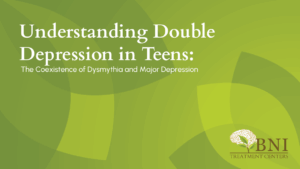Purple is an edgy hue that has long been associated with music. From the 70s hard rock days when the color helped name the band, Deep Purple, and Jimi Hendrix’s famous song, Purple Haze, to Prince’s 1984-era chart topper, Purple Rain; purple is a color that has evoked fervor, intensity, and drama.
These days, however, purple is associated with something called Purple Drank, a concoction of codeine-based cough syrup enhanced with Sprite and laced with Jolly Rancher candies. But don’t let those seemingly innocuous ingredients fool you—the resulting beverage indeed elicits fervor in its advocates, intensity in its effects, and drama related to its serious health consequences, including death.
A core ingredient in cough syrup, dextromethorphan (DXM), has the ability to impact the part of the brain that is associated with coughing and causing that coughing to stop. Thrill-seeking teens have learned that consuming large quantities of DXM can result in a euphoric buzz, what is termed “robotripping.” In addition to the Purple Drank concoction, teens have also combined cough syrup with opioids, alcohol use, and marijuana to intensify the high. Due to the potentially dangerous health risks, parents now seek out cough syrup teenage addiction treatment programs that can step in and help prevent serious consequences.
Celebrities and Purple Drank
Born in the 1990’s Houston hip hop scene, Purple Drank, also known as Sizzurp, Lean, and Texas Tea, became a central theme in not only the lyrics penned by various hip hop artists, but played out with flourish in their lifestyles. Made famous by such artists as DJ Screw, Pimp C, and Big Moe in their lyrics and performances, Purple Drank was subsequently also the cause of their untimely deaths. The drink is glamorized in music videos, YouTube postings, and on social media, perpetuating the drug’s ongoing allure among teens.
In addition to hip hop artists and rappers, Purple Drank has also been abused within the ranks of the NFL. Johnny Jolly of the Green Bay Packers, Terrance Kiel of the San Diego Chargers, and JaMarcus Russell from the Oakland Raiders were all arrested in incidents involving the DXM-based drink.
About Cough Syrup Abuse
Prescription-strength cough syrup containing codeine and promethazine is mixed with sodas like Sprite or Mountain Dew, and the sweetness enhanced with Jolly Rancher candies. When the drink is consumed for recreational drug use, it is often at a dosage that exceeds 25 times the recommended dose for the cough medication.
Because both of the active ingredients are central nervous system depressants, dangerous respiratory depression can occur when high doses are consumed. Codeine is in the opiate family, and is classified as a Category II controlled substance that converts to morphine in the body. Promethazine is an antihistamine with sedative qualities, and at high doses can result in a dissociative state, similar to PCP or ketamine
Taken together at high doses, Purple Drank has a powerful sedative effect, including such symptoms as:
- Slurred Speech
- Drowsiness
- Lack of coordination
- Slowed heart rate
- Problems with balance
- Droopy eyes
- Raspy Voice
- Pale complexion
- Seizure
At extremely high doses, Purple Drank can prove fatal as significant central nervous system and respiratory depression can cause the heart and lungs to stop functioning.
How Cough Syrup Abuse can Lead to Addiction
In addition to the symptoms listed above, there may be other attitudinal or behavioral changes that your teen exhibits that may point to a problem with Purple Drank. Kids can be secretive about their experimentation of recreational drugs, so parents need to follow their instincts and dig a little deeper if their teen displays changes such as:
- Anxiety and depression
- Continually asking for help for a medical condition related to a cough. Persistent seeking of prescription medication may be a sign of a substance abuse problem.
- Finding prescription cough medicines missing from the parent’s medicine cabinet
- If your teen is sleep more than usual, or has acquired an apathetic attitude towards school or family, this could be a sign of drug abuse.
- Persistent muscle twitching, fainting, rashes, and vomiting
Inpatient cough syrup teenage drug abuse treatment can provide the therapy and support to help the teen change the addictive behaviors that have become self-destructive. Cognitive behavioral therapy, mindfulness cognitive behavioral therapy, and solution focused therapy are evidence-based approaches that are highly effective in treating teens with substance use disorders.
BNI Treatment Centers Provides Cough Syrup Teenage Drug Abuse Treatment
BNI Treatment is a residential teen addiction and teen mental health treatment center in Los Angeles. If your teen has gotten caught up in the recreational abuse of DXM or cough syrup with codeine they may need professional help. At BNI Treatment, our highly trained, experienced, and supportive staff specializes in cough syrup teenage drug abuse treatment, creating a tailored treatment program that will meet your teen’s specific needs. Our home-like setting provides a safe and supportive environment for your adolescent to learn to make the positive choices that will lead them to enjoying a satisfying and productive life. For more information about DXM abuse and treatment, contact BNI Treatment today at (888) 522-1504.




